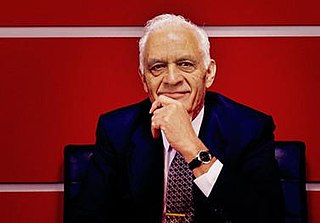A Quote by Ahmed Zewail
After World War II, scientific research in the U.S. was well supported. In the 1960s, when I came to America, the sky was the limit, and this conducive atmosphere enabled many of us to pursue esoteric research that resulted in America winning the lion's share of Nobel Prizes.
Related Quotes
The technological overflow from scientific research has brought scientific research this bad name about carrying an irresponsibility and an alienation from God - because scientific research has led to things like the atom bomb, it's led to problems with depletion of ozone in the Earth's atmosphere, or at least it's revealed those problems.
World War II was really unusual, because America was in the Great Depression before. So the war did help the US economy to get securely out of this decline. This time, the war [in Iraq] is bad for the economy in both the short and long run. We could have spent trillions in research or education instead. This would have led to future productivity increases.
It's very important to understand that World War II is at the base of this new policy. From the 1890s on, the U.S. was always imperialistic. We went after the Philippines, and we did the same in Cuba, in Hawaii. We controlled South America. Woodrow Wilson was not what he was supposed to be. He was very much a white man first. "The world must be made safe for democracy." It really accelerates after World War II.
America felt victorious and generous after World War II. They had also learned from the mistakes after World War I when they imposed punishment on Germany. What became of Germany? A Nazi dictatorship which threatened the world. Today's Germany doesn't feel as prosperous and generous as America then. But actually, Germany still is very prosperous.
Behind Trump's promise to 'make America great again' lie many fallacies. The most important fallacy is that America's place in the world can be restored to the one it occupied after World War II, when Europe was still recovering from vast devastation and most developing countries were still European colonies. It can't be.
History of America, Part I (1776-1966): Declaration of Independence, Constitutional Convention, Louisiana Purchase, Civil War, Reconstruction, World War I, Great Depression, New Deal, World War II, TV, Cold war, civil-rights movement, Vietnam. History of America, Part II (1967-present): the Super Bowl era. The Super Bowl has become Main Street’s Mardi Gras.
Science was blamed for all the horrors of World War I, just as it's blamed today for nuclear weapons and quite rightly. I mean World War I was a horrible war and it was mostly the fault of science, so that was in a way a very bad time for science, but on the other hand we were winning all these Nobel Prizes.



































